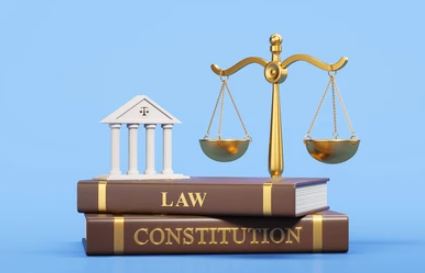A legal expert has revealed that the administrative areas created by President Salva Kiir have been operating without their constitutions for many years, putting the legitimacy of those areas into question.
Deng John Deng, a South Sudanese lawyer, told Radio Tamazuj that the three administrative areas of Abyei, Ruweng, and Pibor since their creation have been running without their constitutions, saying this constitutes a constitutional crisis for the respective jurisdictions.
“Since the creation of the three administrative areas of Abyei, Ruweng, and Pibor in 2020, they have got no constitutions, so, this is a strange constitutional situation,” he said, and asked: “How can an administrative area be governed for four years without a constitution that a chief administrator or governor can refer to in the exercise of his or her powers?”
The lawyer called for urgent action to address the lack of constitutional frameworks in the country’s administrative areas.
For his part, the Greater Pibor Administrative Area (GPAA) Information Minister Oleyo Akwer Nyalus raised the alarm over the region’s legitimacy because it operates without the requisite legal instruments.
GPAA was created after Pochalla and Pibor counties were carved out of Jonglei State through a presidential decree in 2014.
The decision to form GPAA was President Kiir’s response to a rebellion over alleged marginalization led by Gen David Yau Yau who became the area’s first chief administrator in 2014.
In 2016, when South Sudan’s 10 states were split into 32, GPAA became Boma State and it later assumed its previous status upon a presidential decree, which annulled the 32 states.
Despite these administrative changes, the area has never had the legal tools for the running of its affairs.
Ruweng Administrative Area is in a similar dilemma, operating with South Sudan’s national constitution since its establishment.
Speaking to this publication, Nyalus faulted the successive GPAA administrations for not enacting a constitution and revealed that the current leadership was working on the matter.
“The previous leadership never enacted a constitution, but there is one being worked on now. Constitutional making is technical and a process,” he said. “Some bills are with our parliament and others are still with the cabinet. When parliament resumes sittings, they will work on our constitution.”
He pointed out Murle customary laws such as forced marriages, the beating of girls, and the age limit for gun possession as some of the areas being forwarded to the National Legislative Assembly for consideration.
For his part, the Ruweng Administrative Area Minister of Information, Youth, Culture and Sports, Simon Chol Malieth, said they were using Presidential Order No.7 in 2020, to run their affairs.
“Yes, we do not have a constitution here in Ruweng but we are using Presidential Order No.7 in 2020 amended together with amendments No. 8 together with the translation of the Constitution of South Sudan, 2011, (as amended),” he stated.




